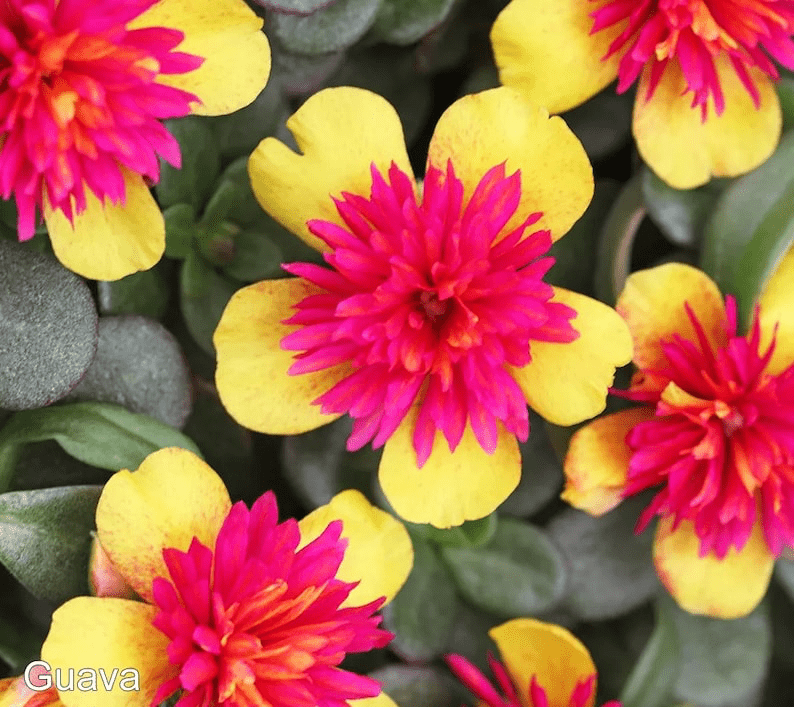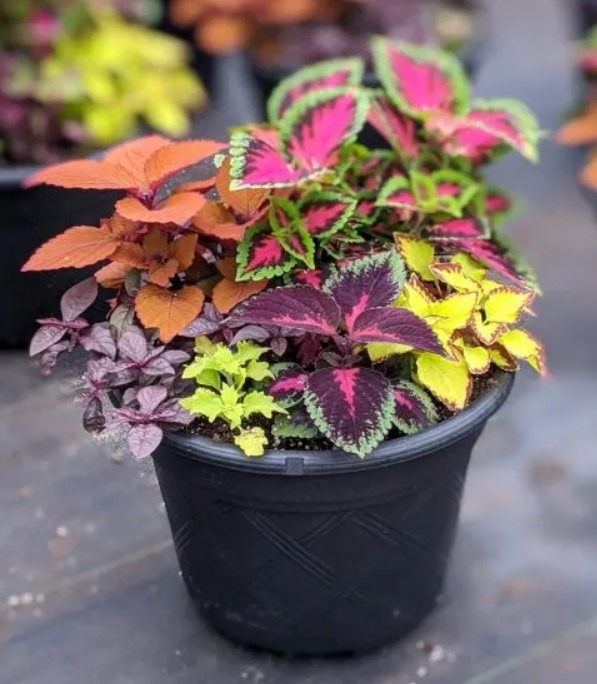Orange Trumpet Vine (Campsis radicans), also known as trumpet creeper, is a fast-growing perennial vine. Growing trumpet vine creepers is really easy.
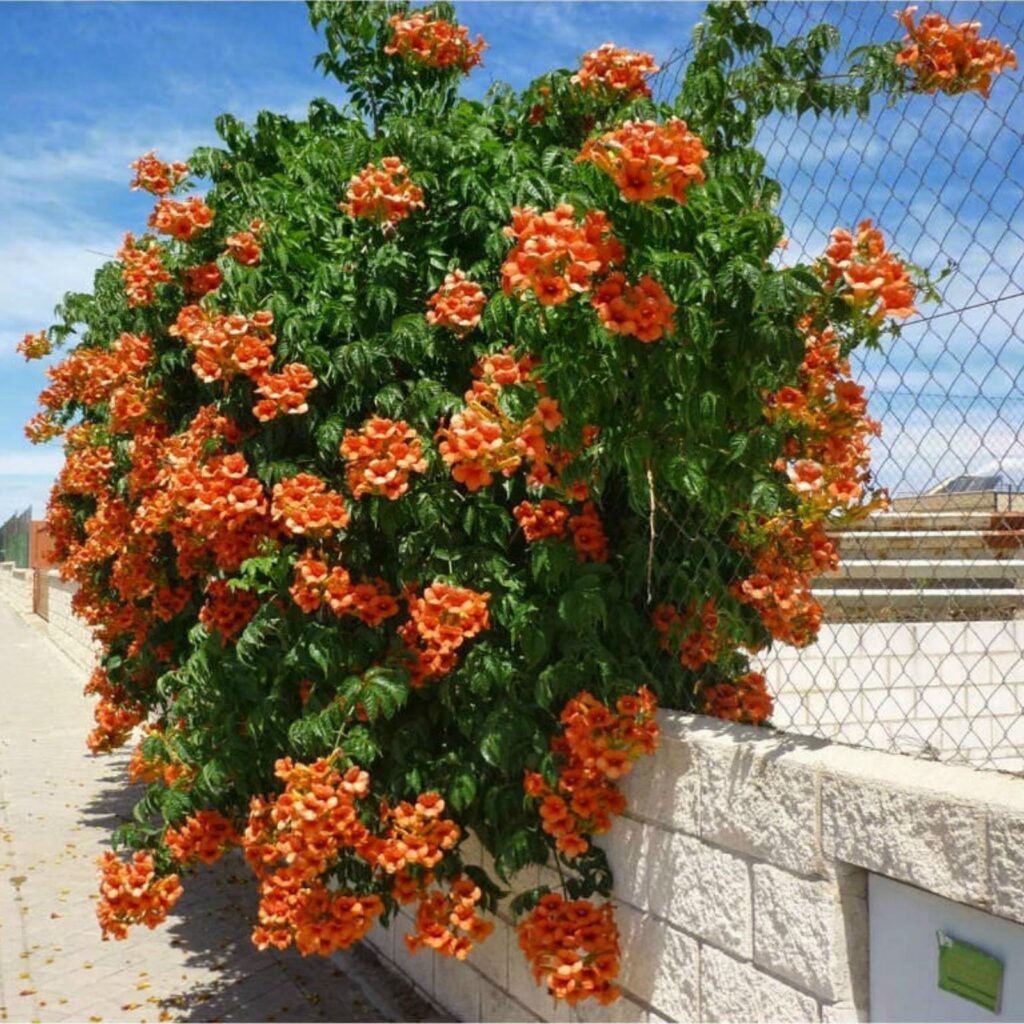
A long time favorite in the summer will attract your neighborhood hummingbirds and butterflies. The orange trumpet like flowers have extended bloom times well into late summer and early fall.
For more orange trumpet flowers plant in full sun. They enjoy a sunny location that gets at least 8 hours of direct sunlight in the garden.
Are you looking to buy a trumpet vine for your yard?
Caring for Orange Trumpet Vine
Botanical Name: Campsis radicans
Common Names: Trumpet vine, trumper creeper, hummingbird vine
Hardiness Zones: 4 to 9
Bloom Time: June to September
Water only as needed and don’t fertilize. Trumpet vines need no help from you to thrive. You just need to prune, prune, prune them so they’ll behave.
Pruning: Did we mention you need to prune the vines? It’s nigh impossible to over prune a trumpet vine. It’s so vigorous a grower it always comes back. Early in spring before new growth appears, cut the plant nearly to the ground, because aggressive pruning is the only way to keep it from taking over your yard.
Deadhead trumpet vine flowers after they bloom to keep the plant from reseeding and spreading. Flowers left on the vine will form 6-inch seed pods that will leave you with trumpet vine seedlings all over the place.
Pull up new shoots that pop up from their roots. Trumpet vine roots will send up shoots that turn into new plants. Whack those baby plants down as soon as you see them.
Orange Trumpet vine requires little care once established. Trumpet creeper is a vigorous grower. Remember, water only as needed and do not fertilize.
About the only maintenance you’ll need to perform is pruning. Orange Trumpet vine requires regular pruning to keep it under control.
Pruning takes place in early spring or fall. Remember Spring is best and the plant may be severely pruned back to just a few buds. Deadheading trumpet vine flower pods as they appear is another good idea. This will help prevent the plant from reseeding in other areas of the landscape.
Trumpet Vine Diseases and Pests
Orange Trumpet vines are resistant to almost all diseases and pests. But it can be a pest itself if it takes over the yard. Here are two ways to kill trumpet vines without resorting to herbicide:
- Dig out the roots. Yes, it’s tough work, but digging out the roots by hand will get rid of the plant.
- Pour boiling, salted water on the plant’s root zone. Add a cup of rock salt to a gallon of boiling water and pour it over the vine’s root zone. You’ll need to do this several times to kill the entire plant. Look out, because this homemade plant killer will also kill other plants in the vicinity.
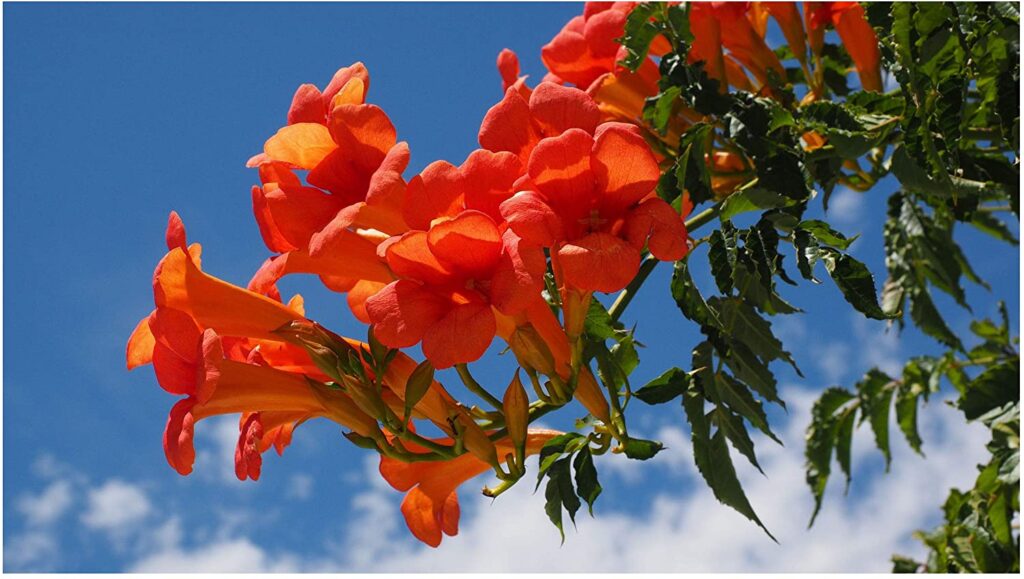
No Blooms
Trumpet vines can take several years to bloom. But if your vine is established and you still aren’t getting any flowers, here’s what could be the problem:
The plant isn’t getting enough sun. Put it in too shady a spot, and you won’t get blooms. Full sun yields the most blooms.
You pruned it at the wrong time. Orange Trumpet vines bloom on new growth, so you must prune before new growth begins for the season, in earliest spring.
You overfertilized it. Unlike most plants, too much fertilizer will keep it from flowering. It’s unhappy if you overdose it with nitrogen. Also, why are you fertilizing a trumpet vine?
Toxicity
Trumpet vine’s sap has a skin irritant that makes some people and livestock itch if they come into contact with it, hence one of its common names: cow itch vine.
Varieties of Trumpet Vine
‘Aurea’ is a cultivar with yellow blooms.
‘Flamenco’ produces orange flowers, grows 20′ to 30′ tall and is hardy in zones 4 to 10.
‘Chinensis’, also known as Chinese Trumpet Vine,is a different species. Campsis grandiflora doesn’t grow as large or as rapidly as the radicans species so plant this one if you fear a trumpet vine takeover. ‘Chinensis’ only reaches heights of 13′ to 30′ and is only hardy in zones 6 to 10. Cold weather kills it. It produces orange flowers.
‘Crimson Trumpet’ is a cross between the Chinese and American species. It produces salmon-red blooms and is more cold sensitive, and hardy only to zone 7. It’s a good choice, too, if you want a less aggressive plant.
More About Trumpet Vine Care
For gardeners willing to put in the effort to control its spread, the trumpet vine can quickly blanket fences, stone walls, arbors, trellises, and other structures, providing a beautiful green focal piece. It can also cover the ground to hide rock piles, tree stumps, refuse heaps, and more.
It is critical to provide a sturdy support structure for this vine, as it can overwhelm trees or buildings. Avoid planting it close to foundations because the creeping vines can damage them. Likewise, the vines can also creep under shingles and cause
Orange Trumpet vines require little care once established, and they rarely have issues with pests or diseases. Fertilization typically is not necessary, and watering usually is only required during periods of drought.
However, despite needing minimal care, trumpet vines are still a high-maintenance plant to have in your garden. The maintenance that will require the most time and effort on your part is to prune back your trumpet vines aggressively to keep them under control.
Also, pull up any new shoots that pop up from the soil as you spot them, and be sure to regularly monitor for them.
Also, remove the seed pods before they open and let their seeds spill out into the soil for germination.
Light
Orange Trumpet vines can grow in full sun to partial shade. But full sun, meaning at least six hours of direct sunlight on most days, will produce the best flowering.
Soil
These vines can tolerate a wide range of soil types, including sandy, loamy, and clay soils. They do best when they have sharp soil drainage.
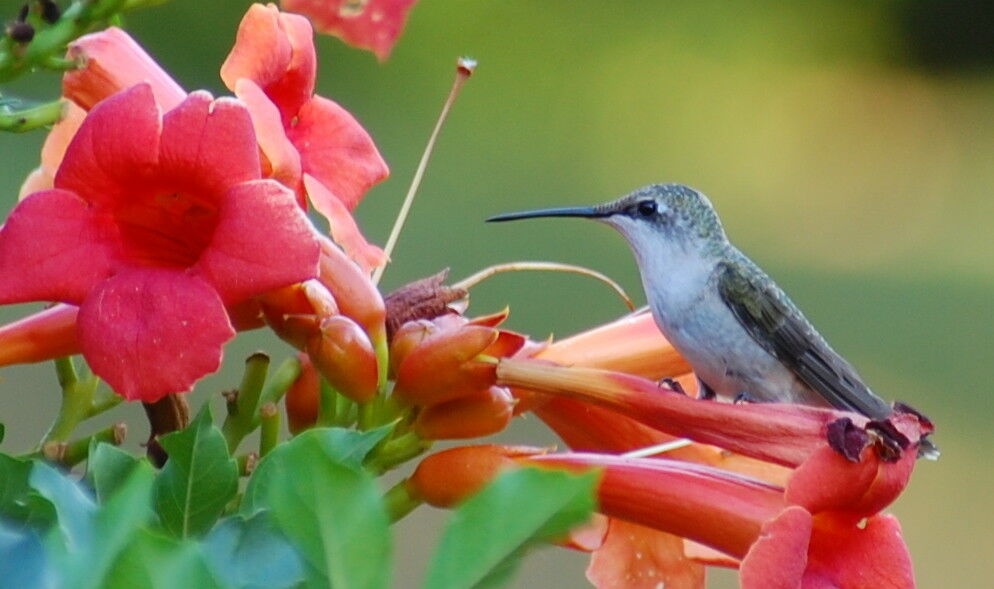
Water
Trumpet vines like a moderate amount of soil moisture but have good drought tolerance. In general, they only need watering when there are obvious signs of wilt and withering. In most climates, the typical rainfall will be sufficient to keep the plants healthy.
Temperature and Humidity
This plant’s natural range is the hot, humid Southeastern United States. And it is quite hardy to both the warm and cold weather of its growing zones. In less humid climates, the vine isn’t as vigorous and thus is easier to control.
Fertilizer
Because trumpet vines are such aggressive spreaders and can thrive in lean soil, no supplemental fertilization is recommended.
Trumpet Vine For Sale
All parts of the trumpet vine, including its seeds and sap, are toxic both to people and animals. Toxicity can occur from ingestion and via skin contact. This is how the plant got one of its common names: cow itch vine.
Symptoms of Poisoning
From skin contact, trumpet vines can cause mild to severe rashes, itchiness, redness, and inflammation on both people and animals. Thus, it is always recommended to use protective clothing when working with the plant. When ingested, the vines can cause upset stomach, nausea, vomiting, and diarrhea. If you suspect poisoning, contact a medical professional as soon as possible.
=



